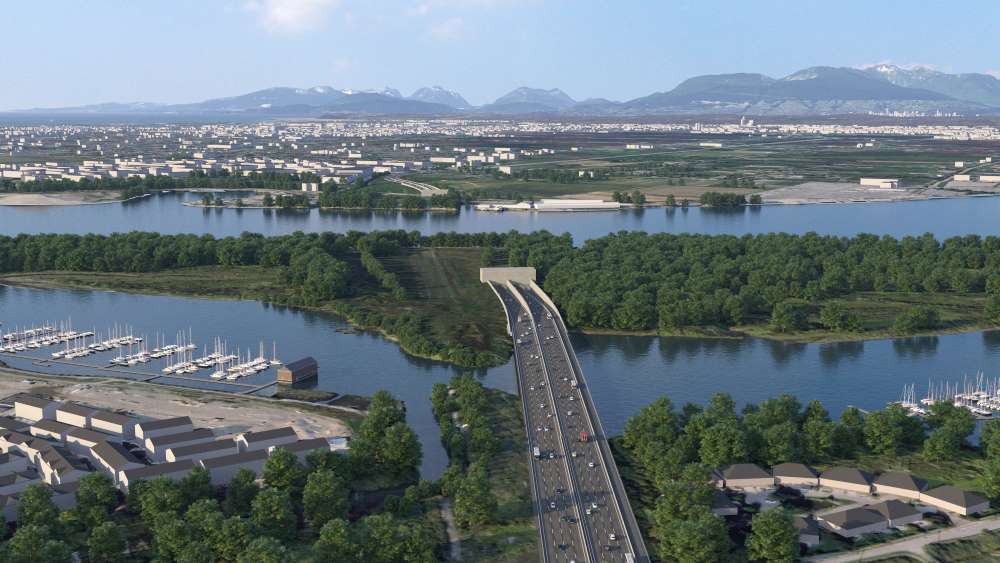With over $60 billion in infrastructure projects funded by governments each year in Canada, it is important that they get bang for the public buck.
The first-of-its-kind report from the Future of Infrastructure Group shows there are good practices in place, but also room for improvement in the public sector around the foundations of infrastructure planning and delivery in Canada.
Good governance is essential to a strong, sustainable infrastructure industry that builds all public sector projects. It helps provide stability, certainty, and confidence right across the infrastructure sector from planners, architects, and designers, to engineers and constructors. Stable public investment enables companies to plan, retain talent, invest in skills development, and drive innovation. It also helps create an environment for successful project prioritization, planning, and delivery that benefits government, industry, and local communities.
With the scale of infrastructure and clean economy investments in the United States, and historic levels of public investment at a time of inflation and labour pressures in Canada, governments in Canada must provide an attractive, efficient market in which to build and invest. To do this they must use best practices to further modernize how they plan, procure, and deliver infrastructure projects. Governments can do this by providing stable annual investment, certainty around project priorities, timelines and delivery models, maintaining healthy project pipelines, and creating conditions that encourage innovation and collaboration in project delivery.
“Long-term infrastructure plans with stable annual investment, clear project selection criteria and processes, specialist agencies that provide leadership and expertise across government, are foundations that contribute to a healthy market,” says Kirsten Watson, Co-Chair, Future of Infrastructure Group. “For governments this helps improve market capacity, drive competition, and create the most value for local communities. Companies look for stable annual investments that let them invest in people and technology, certainty around project timelines to help with managing resources, and a healthy pipeline of projects that provides them with confidence that there are opportunities within a market to grow. Good governance is the basis for creating a market with these conditions.”
For governments, good governance helps to ensure money spent delivers the biggest impact against policy goals and provides the biggest benefit to local communities. It ensures that projects do not work against each other by competing for bidders and resources due to their timing. Finally, sharing best practices and greater consistency of process helps to build capacity across the public service to create environments that help get projects built on time and on budget.
“With investment being significantly ramped up in the United States, plus historic investments in Canada at a time of inflation and labour pressures, it is important that Canada’s governments provide an inviting environment for companies to bid on and deliver infrastructure projects. Projects benefitting from clear guidance and using the best available tools from planning through delivery create a win-win-win for governments, industry, and communities,” adds David Morley, Co-Chair, Future of Infrastructure Group
The Future of Infrastructure Group assessed federal, provincial, and territorial governments’ infrastructure market governance based on publicly available information. The leading industry group mapped out what market fundamentals are in place, and looked at best practices within Canada and beyond. The seven fundamentals of highly effective governments creates a foundation for a stronger, more competitive infrastructure market so that governments get the most value for their investments and the Canadian infrastructure industry thrives.
The seven fundamentals help to provide a more stable level of investment and enhance market certainty, ensure that projects being built have been selected based on merit and provide the biggest benefit to communities, and that the best tools and processes are being used to give projects the best chance of being delivered on time and on budget. The seven fundamentals are:
- A long-term infrastructure plan: a 10-year plan that outlines overall objectives and maps out infrastructure needs based on overall economic, social, and environmental goals.
- Evidence-based project selection: a transparent approach around how projects are selected using evidence and clear, comparable metrics.
- Published project pipeline: a publicly available, regularly updated list of projects planned that covers the whole of government, ideally other levels of government within a jurisdiction too.
- Specialist infrastructure agency: a centre of excellence to plan, procure, and/or deliver projects and support other government departments.
- Project delivery roadmap: guidance for government project managers to provide consistency and best practices at every stage from planning through to operations and maintenance.
- Infrastructure sector charter: a set of commitments to work together with industry to create a more innovative, more productive, more collaborative infrastructure sector.
- Digital commitment: a clear commitment to move away from paper to digital tools at every project stage from design to operations and leverage the value of data collected.
Based on the analysis, Quebec has all seven fundamentals in place and is continuing to work to drive further improvement both within government and together with industry partners. This is noticeable within the annually updated 10-year Quebec Infrastructure Plan that accompanied the recent 2023 Budget, where there is also increasing focus on performance of the sector and working with industry to improve overall productivity, collaboration, and competitiveness. There are also encouraging recent developments including in Alberta with the passing of the Infrastructure Accountability Act and creation of the province’s 20-Year Strategic Capital Plan; the publication of the British Columbia Major Infrastructure Projects Brochure for all public sector projects in the province over $50 million; and the recent release of Manitoba’s first Multi-Year Infrastructure Investment Strategy.
The report also underlined the importance of transparency as a way of encouraging collaboration and learning between different governments. Many of the challenges faced in infrastructure planning and delivery are largely common across Canada. All levels of government would benefit from regular intergovernmental dialogues on the issues they face, how they have developed their processes, and their experience around implementation.
While Canada overall has a solid track-record in many respects, learning from other markets provides a fresh perspective. The experience of Australia is that transparency further underpins market stability by ensuring any change of direction on projects would have to be fully justified by elected leaders against a robust, evidence-based process. They also found publishing pipelines to be the most impactful change they made, benefiting industry and government. The report provides references to other leading international practices and examples for Canadian governments to build on.
“Active markets with healthy project pipelines, and strong, reliable government partners attract the best companies and talent. The good news is that there are many examples of leading practices in Canada that can help provide ideas and ready-made solutions that can help raise the bar across the country. There are also positive trends across Canada. Manitoba and Alberta recently launched their first long-term infrastructure plans, British Columbia published its Major Projects Brochure, and Quebec launching a digital construction roadmap and an action plan to work with industry to meet shared challenges,” says John Allen, executive director, Future of Infrastructure Group.
Featured image: Infrastructure BC’s Fraser River Tunnel Projet. (BC Ministry of Transportation and Infrastructure)















